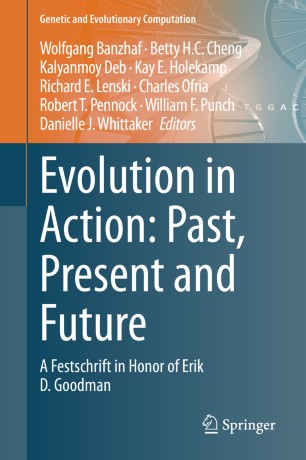

Most ebook files are in PDF format, so you can easily read them using various software such as Foxit Reader or directly on the Google Chrome browser.
Some ebook files are released by publishers in other formats such as .awz, .mobi, .epub, .fb2, etc. You may need to install specific software to read these formats on mobile/PC, such as Calibre.
Please read the tutorial at this link: https://ebookbell.com/faq
We offer FREE conversion to the popular formats you request; however, this may take some time. Therefore, right after payment, please email us, and we will try to provide the service as quickly as possible.
For some exceptional file formats or broken links (if any), please refrain from opening any disputes. Instead, email us first, and we will try to assist within a maximum of 6 hours.
EbookBell Team

4.4
52 reviewsThis edited research monograph brings together contributions from computer scientists, biologists, and engineers who are engaged with the study of evolution and how it may be applied to solve real-world problems. It also serves as a Festschrift dedicated to Erik D. Goodman, the founding director of the BEACON Center for the Study of Evolution in Action, a pioneering NSF Science and Technology Center headquartered at Michigan State University. The contributing authors are leading experts associated with the center, and they serve in top research and industrial establishments across the US and worldwide.
Part I summarizes the history of the BEACON Center, with refreshingly personal chapters that describe Erik's working and leadership style, and others that discuss the development and successes of the center in the context of research funding, projects, and careers. The chapters in Part II deal with the evolution of genomes and evolvability. The contributions in Part III discuss the evolution of behavior and intelligence. Those in Part IV concentrate on the evolution of communities and collective dynamics. The chapters in Part V discuss selected evolutionary computing applications in domains such as arts and science, automated program repair, cybersecurity, mechatronics, and genomic prediction. Part VI deals with evolution in the classroom, using creativity in research, and responsible conduct in research training. The book concludes with a special chapter from Erik Goodman, a short biography that concentrates on his personal positive influences and experiences throughout his long career in academia and industry.